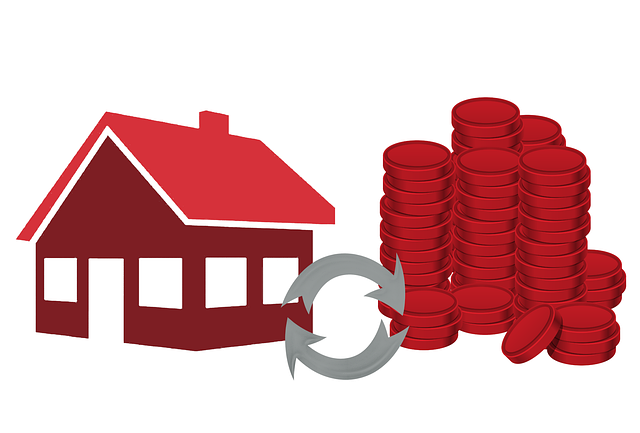Contractors can expand their businesses and better serve clients by understanding and implementing various home improvement financing options, including short-term loans, lines of credit, and extended payment plans. These tools enable customized services, efficient cash flow management, and client satisfaction. Traditional bank loans offer structured budgets, construction mortgages provide phase-based access to funds, and lines of credit offer flexible cash flow management. Secure larger projects, boost revenue, and maintain a robust credit score for better borrowing conditions. Assess client financial capacity, project scope, and cost estimates to streamline the financing process.
Looking to boost your home improvement projects with smart financing? This guide is tailored for contractors seeking to navigate the complex world of funding options. From understanding the ins and outs of financing to exploring diverse loan types, we demystify the process. Learn about the tangible benefits and strategic considerations that make financing a game-changer for contractors. Discover key factors to secure effective home improvement financing, enabling you to take on more projects and elevate your business.
- Understanding Home Improvement Financing for Contractors
- Types of Financing Options Available to Contractors
- The Benefits and Considerations for Contractors Using Financing
- Key Factors in Securing Effective Home Improvement Financing
Understanding Home Improvement Financing for Contractors

Understanding home improvement financing for contractors is a crucial step in growing your business and catering to clients’ needs effectively. In today’s competitive market, contractors who offer flexible and accessible financing options can set themselves apart from the competition. Many homeowners seek ways to fund their renovation projects without breaking the bank, making financing services an attractive addition to any contractor’s arsenal. By providing financing for contractors, businesses can tap into a broader customer base, increase project approvals, and foster long-term client relationships.
Contractors have various financing options available, including short-term loans, lines of credit, and longer-term payment plans. These financial tools enable contractors to offer services tailored to individual clients’ budgets and requirements. With the right financing strategy, contractors can efficiently manage cash flow, cover project expenses, and ensure client satisfaction throughout the improvement process.
Types of Financing Options Available to Contractors

When it comes to home improvement projects, contractors have several financing options available to them, each with its own advantages and considerations. One popular choice is traditional bank loans, which offer fixed interest rates and structured repayment plans. These loans are ideal for contractors who prefer a clear budget and consistent cash flow throughout the project.
Another viable option is construction mortgages, designed specifically for the building phase of a home improvement project. This type of financing provides contractors with access to funds as they need them, allowing for flexibility during different stages of construction. Moreover, lines of credit offer a revolving fund that contractors can tap into as required, providing convenience and the freedom to manage cash flow dynamically. In terms of financing for contractors, understanding these diverse options is key to selecting the most suitable approach for any given project.
The Benefits and Considerations for Contractors Using Financing

Using financing for contractors offers several strategic advantages. It allows professionals to access capital upfront, enabling them to secure larger projects and increase their revenue potential. With financing options, contractors can also manage cash flow more effectively, ensuring they have the resources needed to complete jobs promptly and efficiently. This is especially beneficial during peak seasons or when taking on complex, time-intensive projects.
However, it’s essential for contractors to carefully consider their financing choices. Different financing models come with varying interest rates, terms, and fees. Understanding these aspects is crucial to avoid excessive debt accumulation. Additionally, maintaining a good credit score is vital, as it can secure better borrowing terms and access to more favorable financing options, ultimately contributing to the contractor’s long-term success and profitability.
Key Factors in Securing Effective Home Improvement Financing

When contractors look into financing options for home improvement projects, several key factors come into play to secure effective and efficient funding. Firstly, understanding the client’s financial capacity is crucial; this involves assessing their creditworthiness and income stability to determine loan eligibility. Lenders will consider the borrower’s debt-to-income ratio, credit history, and ability to make consistent repayments.
Additionally, the scope and cost of the improvement project are essential considerations. Contractors should provide detailed estimates and plans to potential lenders, clearly outlining the work involved and associated expenses. This enables financing institutions to evaluate the project’s feasibility and its potential return on investment, thereby facilitating the approval process for financing for contractors.
Home improvement financing for contractors offers a range of benefits, from expanding business opportunities to enhancing customer satisfaction. By understanding different financing options and key factors for securing effective loans, contractors can make informed decisions to drive growth and stay competitive in the market. Embracing these strategies ensures access to capital, enabling professionals to take on larger projects and provide superior services to homeowners. This, in turn, fosters a thriving industry that meets the ever-evolving demands of home improvement.
